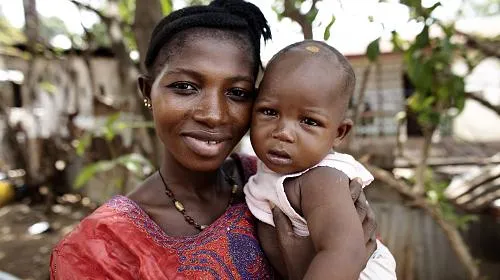WASHINGTON (Jan. 24, 2017) – The leading global poverty-fighting organization CARE is deeply concerned by the Trump Administration’s reinstatement yesterday of the “Mexico City policy,” which will have harmful effects on the health of millions of women and families around the world. CARE’s experience working in 94 countries to provide development and humanitarian assistance indicates that this misguided policy is dangerous and puts lives at risk. When the “Mexico City policy” has been instituted under previous administrations, it has resulted in reduced access to vital family planning services, the closure of health clinics and poorer health outcomes for women and children.
The policy, also known as the “Global Gag Rule,” restricts non-U.S. organizations from promoting or advocating for safe abortion, even with funds raised from other sources. (Note: U.S. law already forbids U.S. funding from being used to perform abortions.) As an organization fighting the forces that trap millions of people in poverty around the world, CARE is deeply concerned that this reinstatement goes even further than previous iterations by affecting the privately funded activities of organizations receiving any federal global health funding, not just family planning funding as was the case with past administrations. CARE’s global work shows that, when U.S. policy restricts access to global health services, vulnerable women and children suffer the most.
U.S. policy governing foreign assistance must reflect the most evidence-based methods aimed at ending preventable maternal and child death. Any action that jeopardizes the resources needed to achieve this goal will have dire implications for the women, men and families that CARE serves.
In addition, under this policy, international organizations could now be stripped of funding under the President’s Emergency Plan for AIDS Relief (PEPFAR) to protect pregnant women and newborns, along with resources to vaccinate children against diseases. This also jeopardizes strategic U.S. investments to strengthen health systems around the world.
Promoting global health is a nonpartisan issue: We all want to live in a world where women and children receive the lifesaving health care they need. More than 800 women, however, still die every day from pregnancy-related complications. We have the capability to drastically change that reality and it is in our interest to do so. We should not restrict care and deny funding to lifesaving programs.
“CARE will continue to work to ensure that women around the world receive comprehensive health care,” said Michelle Nunn, president and CEO of CARE. “We know that simple, inexpensive interventions can reduce maternal and child deaths substantially. For example, by ensuring that all women have access to voluntary contraception, we could reduce maternal deaths by 67 percent and newborn deaths by 77 percent globally. These low cost interventions can save lives and build a brighter future for women, their families and their communities.”
ABOUT CARE: Founded in 1945, CARE is a leading humanitarian organization fighting global poverty. CARE places special focus on working alongside poor girls and women because, equipped with the proper resources, they have the power to lift whole families and entire communities out of poverty. Last year, CARE worked in 94 countries and reached more than 80 million people around the world. To learn more, please visit www.care.org.
Media Contacts: Nicole Ellis, +1-202-560-1791, nicole.ellis@care.org

